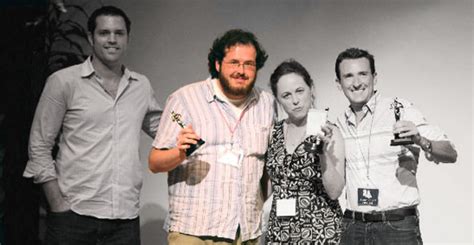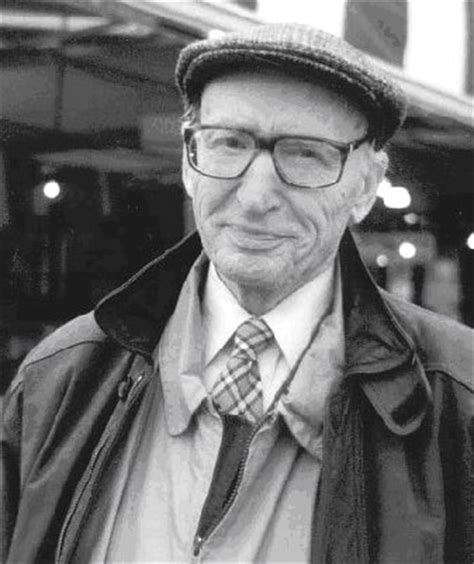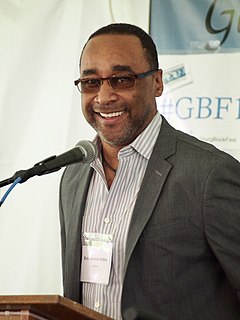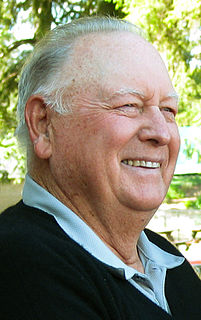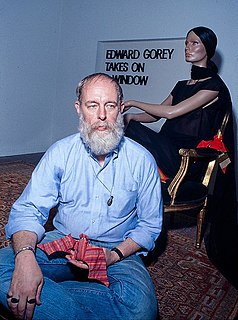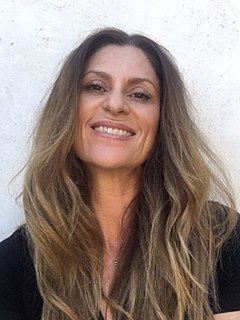Top 177 Rewriting Quotes & Sayings - Page 3
Explore popular Rewriting quotes.
Last updated on April 19, 2025.
After 'Divergent,' I got a job rewriting a sci-fi script at Paramount. I think they really liked what I did, so I got a call saying, 'We're about to shoot 'Ninja Turtles' in three or four months; do you wanna come in and do a little work on the script?' That was the beginning of a many-month 'Ninja Turtle' odyssey.
I am a technophile, so there is no such thing as a first draft. The first draft plunges on, and about a quarter of the way through it I realise I'm doing things wrong, so I start rewriting it. What you call the first draft becomes rather like a caterpillar; it is progressing fairly slowly, but there is movement up and down its whole length, the whole story is being changed. I call this draft zero, telling myself how the story is supposed to go.
A big reason why we were able to and have been able to continue to succeed is that we had a very intense work ethic, right from the beginning. There was a do-or-die attitude toward the work. It wasn't seen as a little "club." It was like, "This is your life." We would spend hours and hours rehearsing and endlessly rewriting. We took it very seriously right off the bat. And we were also extremely critical of each other, which was another thing that was unique. A lot of comedy ensembles have a hard time being critical of each other, because they don't want to hurt each other's feelings.
The only thing I might have noticed [and this is pretty anecdotal] is that there is some tendency to need to be taught that 'writing is rewriting' - maybe more of a sense than was pervasive 10 years ago that the first or second pass of a story is sufficient. That is an idea that is easily dislodged, but I suspect it might have something to do with the turnaround time re: blogging and so on - this sense that there is some essential truth about a first draft that one runs the risk of "ruining" by coming back to it.
We’re constantly changing facts, rewriting history to make things easier, to make them fit in with our preferred version of events. We do it automatically. We invent memories. Without thinking. If we tell ourselves something happened often enough we start to believe it, and then we can actually remember it.
In a poem, the words happen; they just come. I let them. Otherwise, I wouldn't write. To interfere with what is happening is to distort the poem. Just a very small degree of intelligence and supervision is necessary. Very tactful. Any revision later that violates the text as it came, that begins rewriting the words, is fake.
What is easy to read has been difficult to write. The labour of writing and rewriting, correcting and recorrecting, is the due exacted by every good book from its author, even if he knows from the beginning exactly what he wants to say. A limpid style is invariably the result of hard labour, and the easily flowing connection of sentence with sentence and paragraph with paragraph has always been won by the sweat of the brow.
If somebody asked for the first draft of something I'd written, it'd probably be pretty close to whatever got published. I get enjoyment out of writing, but I get absolutely no enjoyment out of rewriting, so I don't do much of it. The more you work on something, certainly, the better it gets. But there's also a pretty clear law of diminishing returns.
Multiculturalism is a campaign to lower America's moral status by defining the American experience is terms of myriad repressionsand their victims. By rewriting history, and by using name calling ("Racist! Sexist! Homophobe!") to inhibit debate, multiculturalists cultivate grievances, self pity and claims to entitlements arising from victimization.
The purest case of an intelligence explosion would be an Artificial Intelligence rewriting its own source code. The key idea is that if you can improve intelligence even a little, the process accelerates. It's a tipping point. Like trying to balance a pen on one end - as soon as it tilts even a little, it quickly falls the rest of the way.
I never got caught up in playing for history, seeing how many majors I could win, or rewriting the record books. Those are selfish objectives, and the guy who chokes usually does so because he dwells on what it all means to him. I was only worried about my family. And although I had my share of failures, it was never because I choked.
'A Fair Maiden' existed in notes and sketches for perhaps a year. When I traveled, I would take along with me my folder of notes - 'ideas for stories.' Eventually, I began to write it and wrote it fairly swiftly - in perhaps two months of fairly intense writing and rewriting. Most of my time writing is really re-writing.
When I am writing a novel, though, then it's usually three or four hours a day. Ideally, right after lunch until three or four, but sometimes picking up again around ten, going until a touch after midnight. I rarely write in the morning, unless I'm on deadline. I do like rewriting in the morning, though. Guess it's the way my brain's put together. Or, the way it's falling apart.
The danger is not only that these austerity measures are killing the European economies but also that they threaten the very legitimacy of European democracies - not just directly by threatening the livelihoods of so many people and pushing the economy into a downward spiral, but also indirectly by undermining the legitimacy of the political system through this backdoor rewriting of the social contract.
I get enjoyment out of writing, but I get absolutely no enjoyment out of rewriting, so I don't do much of it. The more you work on something, certainly, the better it gets. But there's also a pretty clear law of diminishing returns. It drives me crazy to do readings of my books, because if I read anything I've written in the past, I'd like to almost rewrite everything.
That is as true for fiction or non-fiction. The writer has to really know their subject. It is really important to remember that the readers are a lot smarter than the writer. Also, good writing has to do with rewriting. You will never get it right the first time. So you rewrite and rewrite again until you get it right. Until you, and the reader, will be able to visualize what you're writing about.
I will write in words of fire. I will write them on your skin. I will write about desire. Write beginnings, write of sin. You’re the book I love the best, your skin only holds my truth, you will be a palimpsest lines of age rewriting youth. You will not burn upon the pyre. Or be buried on the shelf. You’re my letter to desire: And you’ll never read yourself. I will trace each word and comma As the final dusk descends, You’re my tale of dreams and drama, Let us find out how it ends.
I think most presidents are amazed at the overwhelming responsibility they have when they enter office and the tremendous amount of work there is. See, a modern president has far more responsibility than a president years ago. And if I were rewriting the Constitution, I would suggest a president be more like a monarch and then have a prime minister under him.
Rewriting isn't just about dialogue, it's the order of the scenes, how you finish a scene, how you get into a scene. All these final decisions are best made when you're there, watching. It's really enjoyable, but you've got to be there at the director's invitation. You can't just barge in and say, "I'm the writer."
Writing something down and processing it, sitting with a text and a story, editing and rewriting new drafts - that entire process helps clarify something for myself. Depending on the person, the act of trying to tell your story helps you understand yourself better, helps you come to terms with something that happened.
It has been said, "History is written by the victors." I take this to mean we can make ourselves victorious by writing, and then rewriting our own stories. In a country and culture so dominated by media, by the manipulation of words and stories, telling the tales of people whose stories historically have not been told is a radical act and I believe an act that can change the world and help rewrite history.
Under Ronald Reagan in the United States and Margaret Thatcher in the U.K., there was a rewriting of the basic rules of capitalism. These two governments changed the rules governing labour bargaining, weakening trade unions, and they weakened anti-trust enforcement, allowing more monopolies to be created.
As I get older I find myself thinking about stories more and more before I work so that by the time I eventually sit down to write them, I know more or less how it's going to look, start or feel. Once I do actually set pencil to paper, though, everything changes and I end up erasing, redrawing and rewriting more than I keep. Once a picture is on the page I think of about ten things that never would have occurred to me otherwise. Then when I think of the strip at other odd times during the day, it's a completely different thing than it was before I started.
I know when a story is finished when there is not a single thing more I can think to do to it. And since I know at the start what the last line will be, I know when I've reached that point as logically as I can that it's finished. As for the rewriting-it's not foolproof, of course, but if you're honest about having thought of every possibility and you still come back to what you have, what more can you do?
When I pick up a pencil, that this is a rough draft. This is not going anywhere, and no one's going to see it. You have permission to make all the mistakes you want. It signals freedom to me, and it signals mistakes. Then when I put it on the computer, a different part of my brain kicks in and I really evaluate every single word and sentence and make decisions. I like that step of polishing while I'm rewriting the entire thing, not just cutting and pasting. Really putting in every word and making a decision: is this something I can stand by?
The public welfare demands that constitutional cases must be decided according to the terms of the Constitution itself, and not according to judges views of fairness, reasonableness, or justice. I have no fear of constitutional amendments properly adopted, but I do fear the rewriting of the Constitution by judges under the guise of interpretation.
I think I was also afraid of the novel. I write line by line, proceeding at snail's pace, rewriting as I go and paring the excess away. This is against all the best advice for writing long form prose, and I have tried over the years to break myself of the habit, but I can't bear to leave anything ungainly on the page and half the fun for me is that tinkering. So the length of a novel was a daunting prospect.
Writing by myself, I spread that out more. I'll spend more time on a song then. I'm more critical about it, because there's no one else in the room to tell me, 'That's really not translating. I'm not getting what you're saying.' So, I'm constantly rewriting it, thinking, 'No, that's fine,' and going back.
The rewriting is always crucial to what I do; whenever I do a scene, I always tell myself that this isn't final and that I can do it again, better. The pacing is probably from experience. I've always liked gradual disclosure. I keep thinking of my rubber-band theory. You have a rubber band that you keep pulling and pulling and pulling, and just at the moment of snapping you release it and start another chapter and start pulling again.
Learn a lot about the world and finish things, even if it is just a short story. Finish it before you start something else. Finish it before you start rewriting it. That's really important.
It's to find out if you're going to be a writer or not, because that's one of the most important lessons.
Most, maybe 90% of people, will start writing and never finish what they started. If you want to be a writer that's the hardest and most important lesson: Finish it. Then go back to fix it.
Having got into bed and turned out the light, I quietly burst into tears because I am not a good person. As they came and went for some minutes, I was concerned with the words following 'because' in the previous sentence, rewriting them over and over in my head until they seemed to be as close to the truth as it was possible for me to make them.
